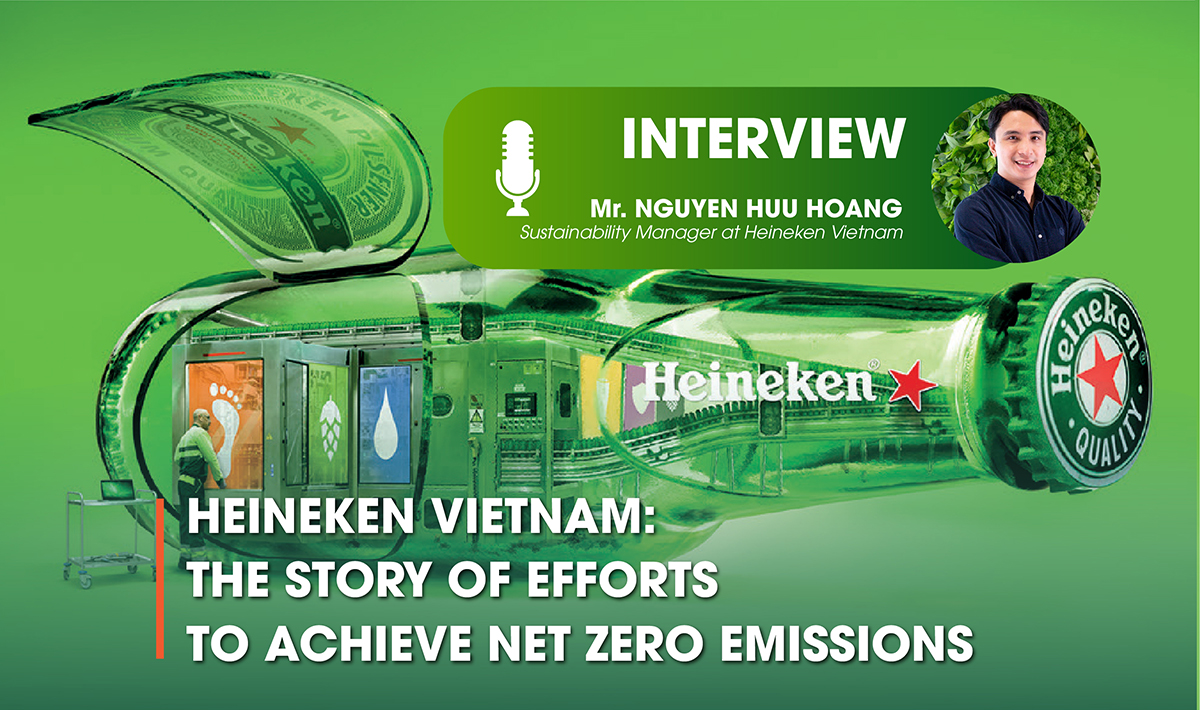
In an interview with NS BlueScope Vietnam, Mr. Nguyen Huu Hoang, Sustainability Manager at Heineken Vietnam, said that Heineken always relies on its carbon emissions reduction strategy for its brewery construction projects, from design to material selection. Priority is given to the use of sustainable materials to minimize maintenance throughout the lifecycle of the project over time.

At Heineken Vietnam, we have set the ambition of reaching net zero carbon emissions in production by 2025 with the 4Rs model, including Reduce, Replace, Remove and Report. With regards to the Replace factor, we replace fossil fuels with renewable energy or low-carbon solutions.
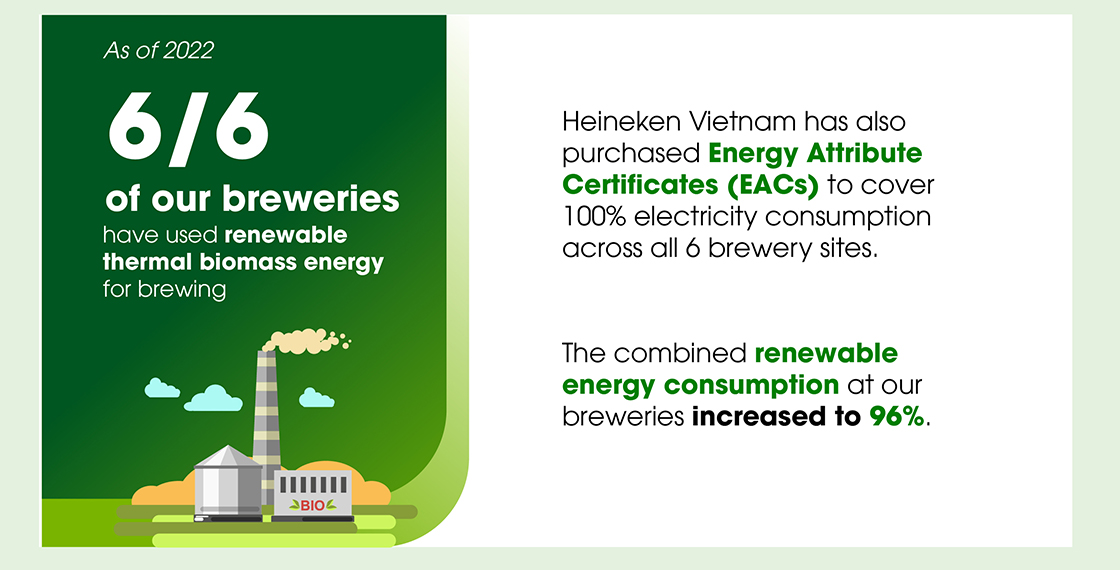
On its Path to Zero Impact, Heineken Vietnam aims to phase out and replace EACs with bolder solutions like Direct Power Purchase Agreements (DPPA) and rooftop solar in the coming years to further support the acceleration of the renewable energy transition in Vietnam.
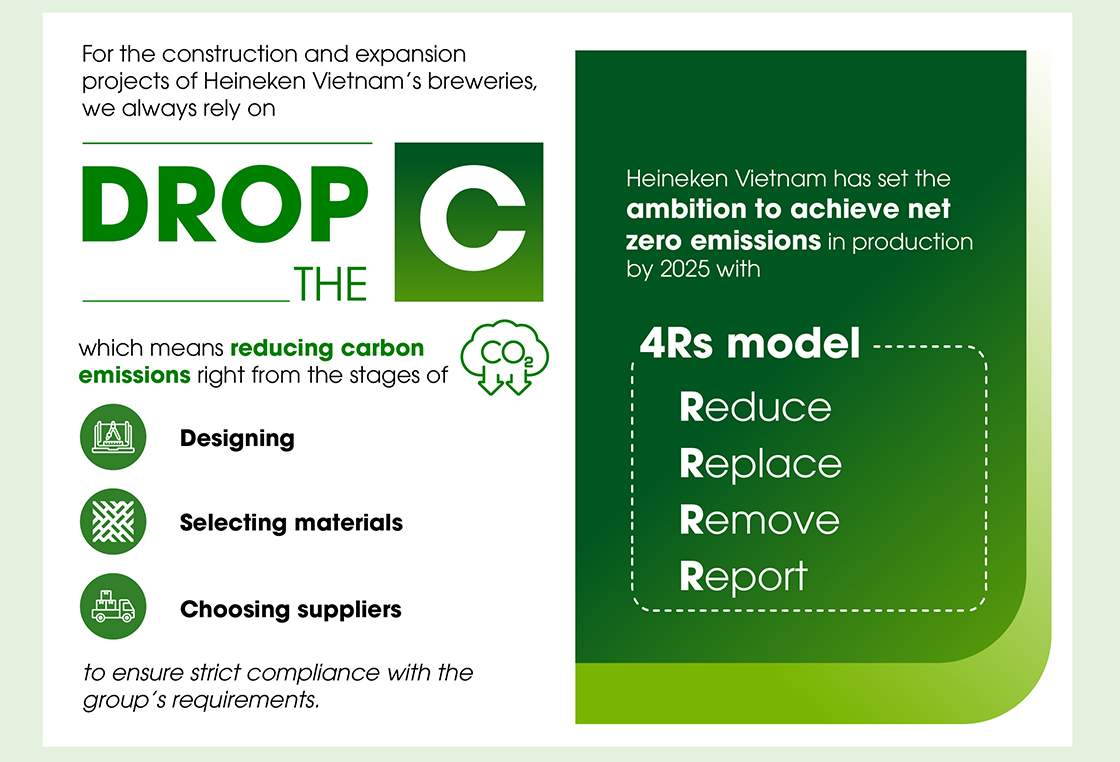

For the construction and expansion projects of Heineken Vietnam’s breweries, we always rely on the “Drop the C” strategy, which means reducing carbon emissions right from the stages of designing, selecting materials, and choosing suppliers to ensure strict compliance with the group’s requirements. For example, the Heineken Vung Tau brewery covers an area of 40 hectares, of which over 10 hectares (27%) have been planned for gardens and green spaces. In addition, to make the most of natural light and air, the brewery has installed 615 transparent domes on the rooftops. This solution reduces the brewery’s energy consumption for lighting while providing ventilation at the production areas…
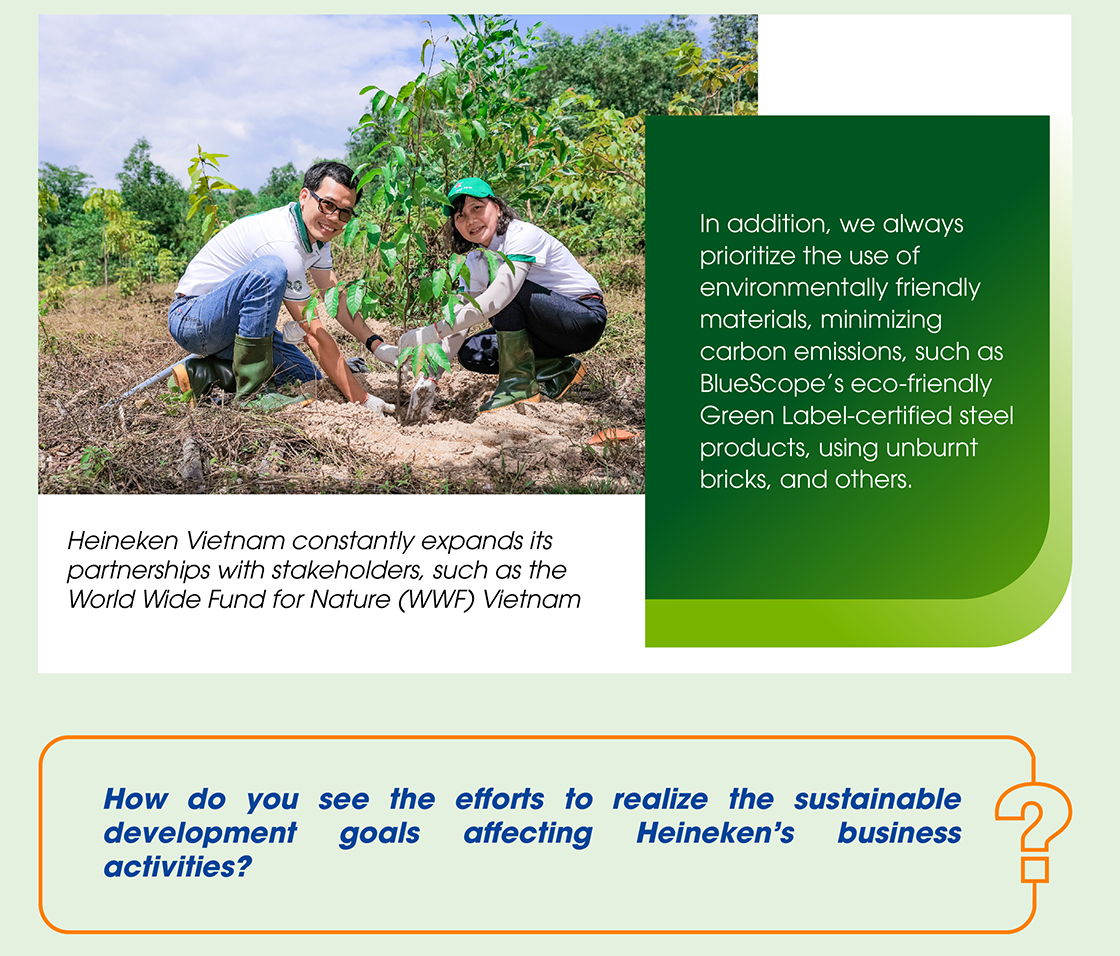
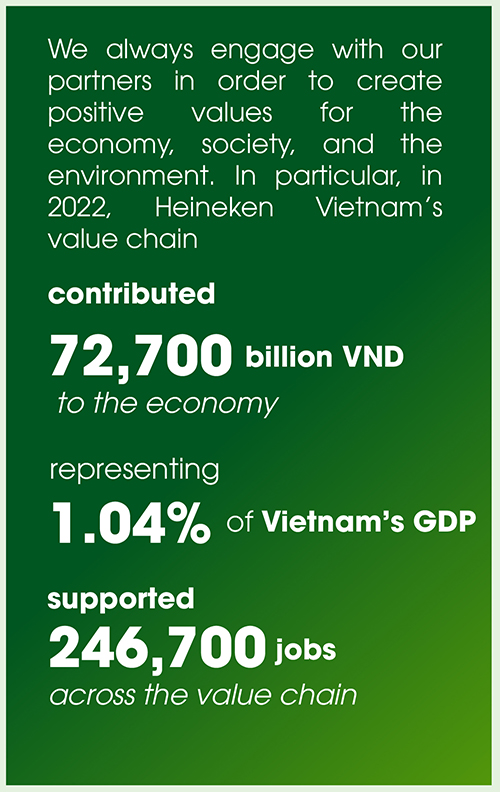
Indeed, sustainable development initiatives not only bring positive benefits to the environment but also to stakeholders engaged in these activities, such as suppliers and businesses. In particular, by adopting the circular economy model, 6/6 of Heineken Vietnam’s breweries have achieved the goal of sending zero waste to landfills, reusing and recycling 100% of their waste or by-products in production, making more efficient use of water and energy, and creating fewer emissions into the environment. Meanwhile, rice husks, sawdust, and agricultural and industrial by-products are turned into biomass fuel for use. This not only reduces carbon emissions but also generates more income for the local people and relevant stakeholders.

As one of the top companies in the beer industry, we always strive to be creative to bring consumers more choices and more interesting experiences.
Over the past three years, Heineken Vietnam has rolled out 6 different innovative products, including no- and low-alcohol products. Not only are we creative in the product portfolio, but we also take the lead with unique and pioneering marketing campaigns and activities. We have won the “Marketer of the Year” award at the MMA Smarties Vietnam awards ceremony for two consecutive years, which is a testament to the company’s superiority in comprehending the new generation of consumers.
Thank you for the interview!



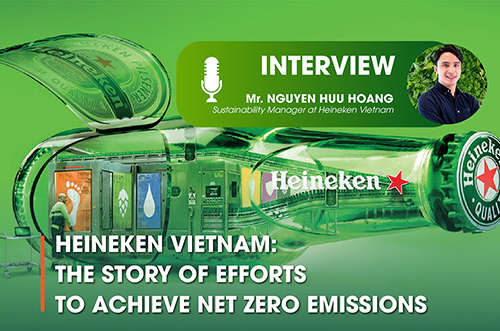

Comment